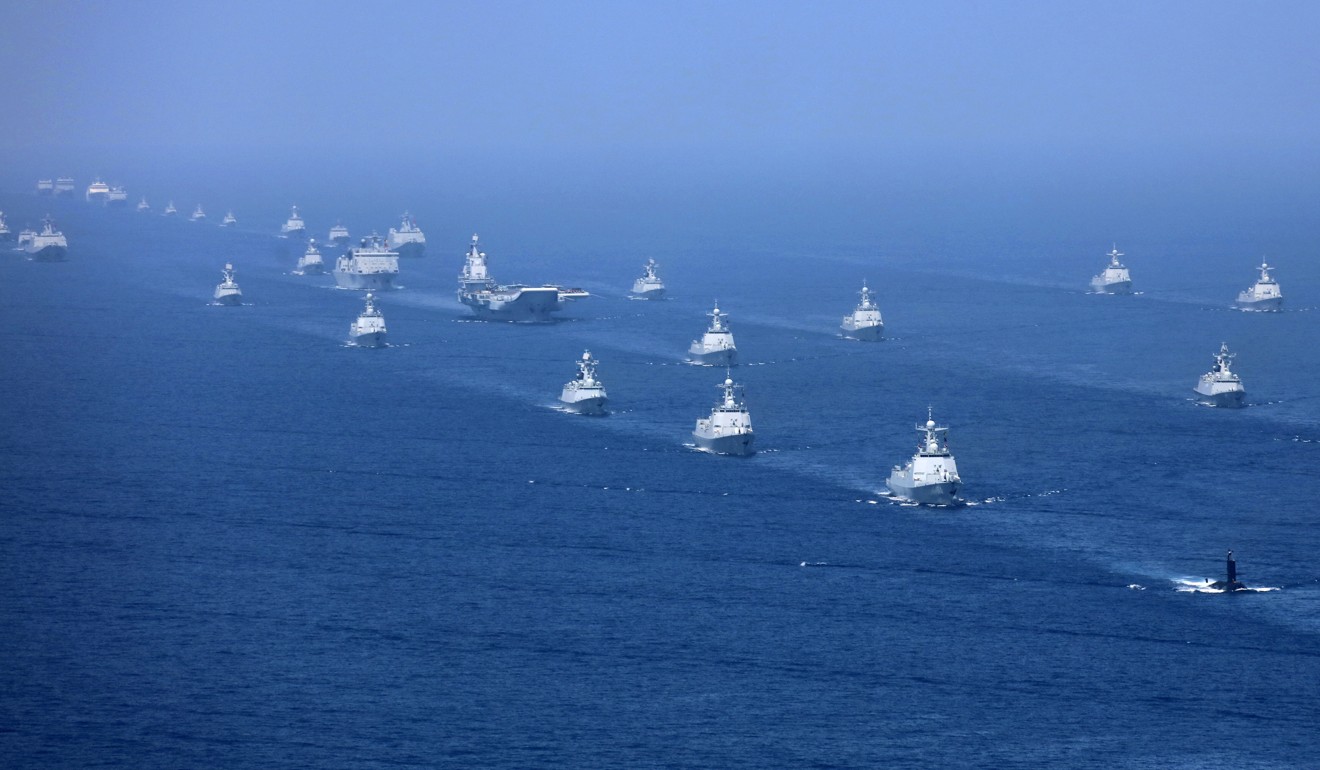
South China Sea on the back-burner while United States and China talk trade
- Differences on the issue too great to warrant bringing up in leaders meeting on the weekend, observers say
China and the United States appeared to put their South China Sea disputes on the back-burner when their leaders met on the weekend, a move analysts said was to avoid derailing discussion on trade.
There was no mention of the disputed waters in statements released after the meeting, despite the two countries’ deep divisions over the area.
Instead, Chinese President Xi Jinping and his US counterpart Donald Trump discussed Taiwan, North Korea and regulating the use of the synthetic opioid fentanyl – as well as trade.
China is one of several countries with competing claims over the resource-rich South China Sea.
The US is not a claimant but it has condemned China’s military build-up in the area and sent warships close to China-claimed islets, triggering protests from Beijing.
Hong Kong-based military commentator Song Zhongping said the two countries’ differences over the South China Sea were too wide to bridge, and putting them aside could help them focus on solving their trade problems.
“China stresses its maritime interests in the waters, while the US attaches importance to freedom of navigation. These are different starting points and cannot be easily reconciled,” Song said.
Let the trade war talks begin: China to send big contingent to the United States
Wang Dehua, a South and Central Asian affairs specialist from the Shanghai Academy of Social Sciences, said the major claimants had toned down their demands, helping to calm the troubled waters.
“In the interest of creating a good atmosphere for the talks, China did not think it was necessary to mention the South China Sea issue; and the US knows it does not benefit from dwelling on it,” Wang said.
Both Washington and Beijing described the weekend leaders meeting as a success and said they had agreed not to impose additional tariffs from January 1.
But while the White House said both countries should address seven economic issues of US concerns within 90 days, or the US will raise the tariffs, there was no mention of the grace period in Beijing.

And while China said it agreed to buy more US products based on consumer demand, the US said the amount would be “very substantial”.
The White House also said Xi was open to approving a deal between US chip maker Qualcomm and Dutch rival NXP Semiconductors – something Beijing made no mention of.
In addition, Beijing – but not the White House – said Trump and Xi would visit each other’s countries.
The US silence persisted in relation to Taiwan, while China said the US would respect the one-China policy.
Winners and losers: how the trade war ceasefire might affect the fortunes of China’s partners and rivals
Taiwanese President Tsai Ing-wen, from the pro-independence Democratic Progressive Party, told a US delegation on Friday that the United States was Taiwan’s most important strategic partner and the island looked forward to continuing close cooperation and further expansion of ties.
Since Tsai has refused to accept the one-China principle since becoming the island’s president in 2016. The principle is an understanding that there is only “one China”, but each side would have its own interpretation of what constitutes “China”.
In response, Beijing has stepped up pressure against Taiwan, including staging war games around the island and poaching five of Taipei’s allies.
Professor Li Mingjiang, from the S. Rajaratnam School of International Studies in Singapore, said the US position on Taiwan, including sending warships to the Taiwan Strait, might backfire.
“Taiwan is regarded as China’s core interest and if a high-ranking US official meets a Taiwanese leader, the relation between China and US might worsen,” Li said.


